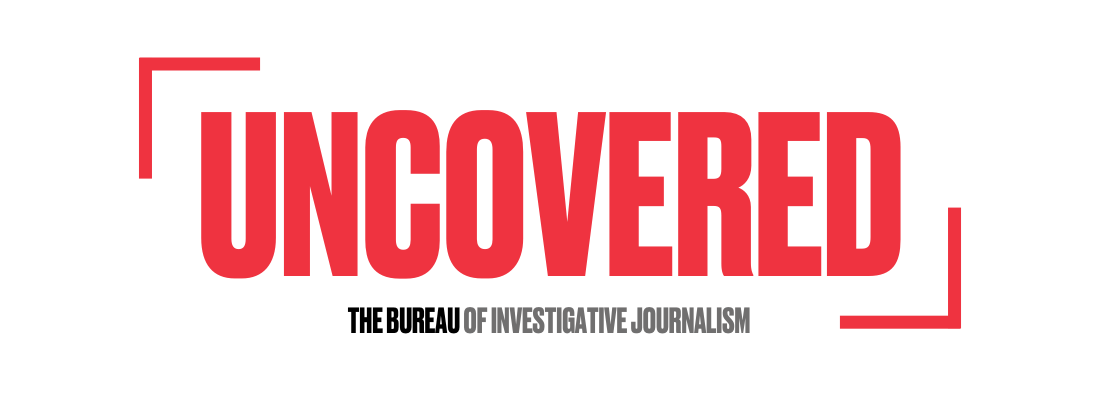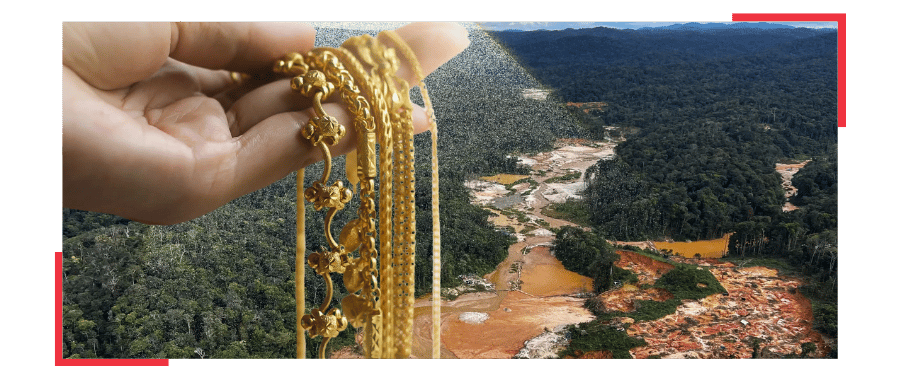
“You have the goods going one way and the paperwork the other”
Hi {{ First name | there }},
Here’s a question for you: how clean is your gold?
It’s worth finding out, if you go by our latest investigation into how a huge lump of illicit gold ended up with financial services company (and prominent rugby club sponsor), StoneX.
The price of gold has gone through the roof amid the global economic uncertainty brought on by Trump’s election, so investors are buying it up to protect themselves from fickle markets. Already this year, it’s jumped by nearly 12%.
When a commodity is in this much demand, you really want to know more about how it’s sourced. Working with our good friends at Repórter Brasil, we came across some intriguing information linking all the way to London. It suggested that some of the gold coming into the market from Brazil was related to pretty serious environmental damage in the Amazon.
And the ultimate buyer? StoneX.
This is a multinational company with various divisions, one of its specialisms being commodity investment. It’s worth about $3.9bn on the Nasdaq. And it owns the naming rights for rugby team Saracens’ stadium in north London.
We can reveal that StoneX bought a consignment of gold worth about £3.7m from Brazil, which ultimately came from ‘wildcat miners’, some of whom have been embargoed by the Brazilian government because of the environmental harm done by their work.
Brazil’s vast network of informal gold miners has been heavily linked to toxic pollution in the Amazon and the devastation of Indigenous lands. If you’ve followed our coverage of the Amazon, you’ll know how rapidly it is being destroyed.
Initially the gold was meant to be going to StoneX’s operation in Dubai. And while the ultimate destination is unclear, we know that a lot of its gold goes to Switzerland and Turkey.
The challenge is that a lot of this kind of gold disappears into the market. Legit and illicit gold become blended. So it’s difficult to hold traders accountable. However, if the environmental degradation is an actual crime, then that poses a particular kind of liability for companies like StoneX.
StoneX told TBIJ it is a responsible member of the global precious metals industry and conducts extensive due diligence. The company said it follows robust policies and processes to verify the legitimacy of origin of all precious metals it acquires, sourcing all such metals in strict compliance with applicable legal and regulatory requirements. And it said StoneX collected the required certificates of origin and background documentation on the shipment in question.
But what we uncovered is part of a much bigger question that applies to many commodities: how do we ensure that the products we buy – whether they’re consumer goods or expensive investments – are the proceeds of an environmental crime or human rights abuse?
This is a conversation that’s long overdue. It’s one we’ve avoided as society and there aren’t easy answers. But it’s one that needs to be had.
Factchecked!
Each week we reveal a fascinating fact from our reporting…
Did you know?
Snakebite is a major killer in many African countries – in 2023 it killed an estimated 20,000 people in sub-Saharan Africa alone.
Find out more
Effective treatment for snakebite in Africa has been plagued with issues for years. This month, TBIJ revealed an antivenom market in sub-Saharan Africa blighted by ineffective medicines, bad regulations and fraudulent research.
But Eswatini, a landlocked country in southern Africa, stands in marked contrast to many of its neighbours as an extraordinary success story – and recorded zero snakebite deaths for the first time in its recent summer season, when rates are typically high.
This success is now under urgent threat from funding cuts, intensified by Donald Trump’s recent USAID freeze.
Fake journeys, fake customers
Superyachts are expensive – really expensive. They cost a fortune to design, even more to build, and after that you still need a crew to sail them and a place to moor. Then there’s insurance, certifications, maintenance, repairs … not to mention vast quantities of fuel.
You’d be better off tipping your money straight into the harbour. Yet they’ve long been the go-to status symbol among the uber-wealthy. When it comes to expenses, however, even the super-rich have their limits.
And luckily for Europe’s yacht owners, there are various ways of keeping your costs down – principally by sidestepping certain taxes.
Roman Abramovich did exactly this, with a rental scheme revealed by TBIJ to have been a ploy to dodge taxes. If you were escaping winter on your own superyacht, or just hiding from an avalanche of mad news, this is the investigation for you to catch up on.
Abramovich denied knowledge of any alleged deception to evade taxes, and said he wasn't liable for any such scheme. His representatives told us he obtained independent professional tax and legal advice and did only as it said.
But experts said there were clear indications of tax evasion. The taxes that went unpaid should have been due in Cyprus and various EU countries including Germany, Italy, France and Spain, and would have amounted to huge sums. The VAT on importing the yachts into EU waters would have been around €100m – and that’s before getting to the huge operational costs.
But what exactly did the arrangement entail? And how was it any different to what so many other law-abiding yacht owners were up to?
Get the lowdown in bitesize form by reading our latest explainer, written by Enablers reporter Simon.
What we’ve been reading
🔴 Check out this impressive investigation from Forbidden Stories, in which the death of a journalist in Cambodia highlights the secrecy surrounding environmental crimes: forbiddenstories.org
🔴 This podcast from the BBC follows a woman called Hannah who was harassed and threatened by a digital stalker: bbc.co.uk
🔴 What does the USAID funding crisis mean for independent media across the world? Read this latest piece from the Global Investigative Journalism Network: gijn.org
Thanks,
Franz
Franz Wild
Editor




